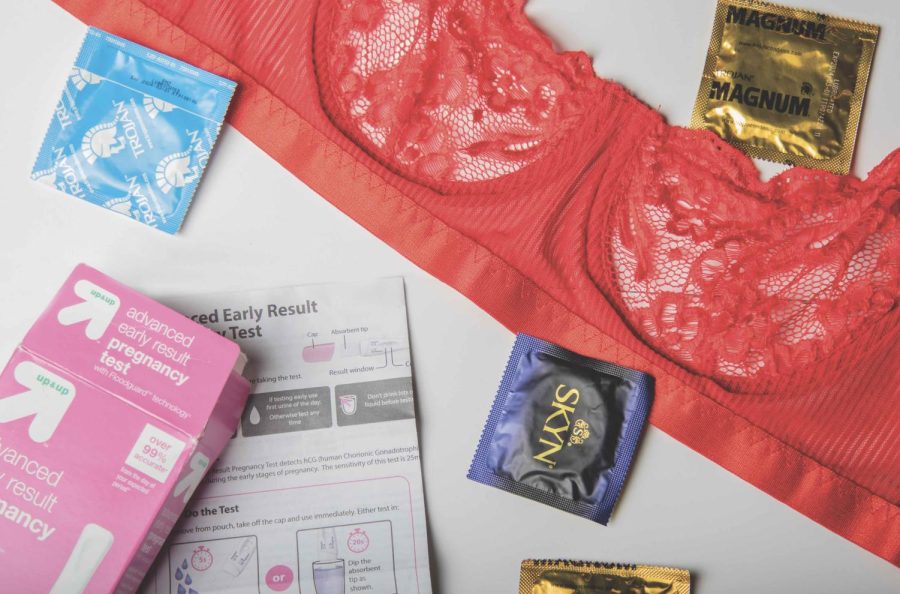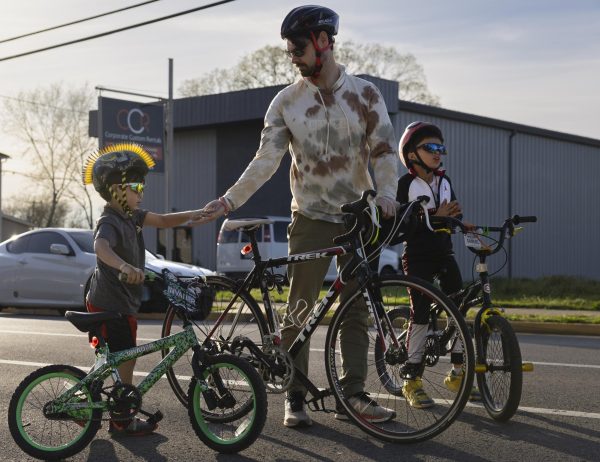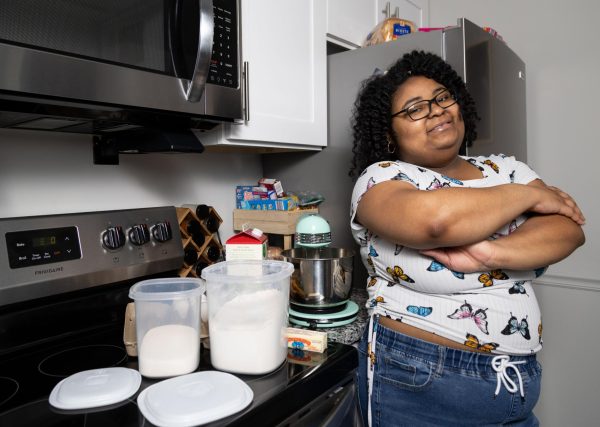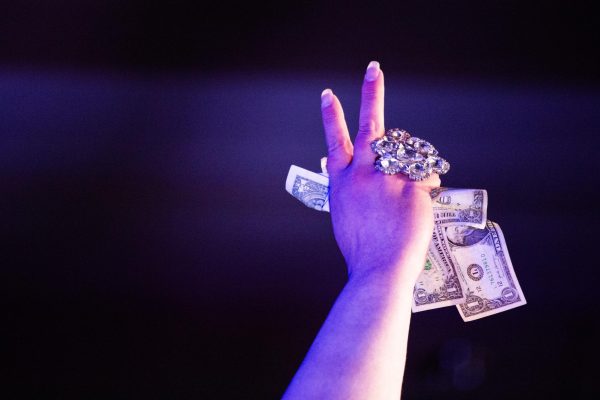‘If we want something now, we can get something now’: How hookup culture impacts college relationships
April 25, 2022
“Hookup culture,” a term used to describe casual sexual encounters and the way people perceive them, has become part of what people view as the “college experience.”
While not everyone wants to participate in hookup culture, everyone should know how to be as safe as possible.
“My first reaction when I hear hookup culture in our society today is that we all have a very short attention span,” Avery Nordgren, graduate assistant for WKU Health Education and Promotion, said. “We have seen this with all of our social media platforms. We’ve just seen a decrease with our attention span. I think hookup culture in our society today has come from that, about how we want things quickly, and once we are dissatisfied with something we’re on to the next.”
Nordgren explained that the quick gratification we see from dating apps, often used to find potential casual partners, has impacted the prevalence of hookup culture. According to the Pew Research Center, 48% of 18 to 29 year-olds said they have used a dating app at one time.
“It’s just a different era that we are seeing, with our Tinder, Bumble, Hinge,” Nordgren said. “Our timespan is if we want something now, we can get something now. It’s very easy.”
The Health Education and Promotion Office works to offer free resources and events to educate students about every aspect of sex, including how to safely experience hookup culture.
“It’s just learning about what safe sex is, what consent is, what all of these encompassing definitions mean, what sex can entail and what the repercussions can be from that,” Nordgren said. “Education is really a big component of it. Having access to different types of barrier methods also helps.”
Free resources include male and female condoms, lubricant, pregnancy tests and dental dams. The office also provides free menstrual products and hosts monthly HIV testing services.

“Getting that word out that we are a free resource on campus is really important,” Nordgren said. “Educating people when they come into our office, or getting face to face, or doing our tabling events, just all the different programs and aspects around sex, [we’re] educating people and making it fun and showing that sex is not some taboo topic anymore.”
She explained that as hookup culture increases on college campuses, it is vital that students see how casual hookups could affect the construction of more long-term relationships.
“College campuses are seeing an increase [in hookup culture],” Nordgren said. “It’s important to know what you’re getting yourself into to make sure that you are being safe. Make sure that there’s mutual respect between partners and make sure that there is consent within all those aspects. Hookup culture in any college student, anyone experiencing that, can have mental health effects as well. When we’re trying to build a community, relationships or partnerships, hookup culture can be very detrimental to that.”
One example of hookup culture’s negative impact is difficulty communicating with a partner if their needs have changed or what they want has changed, Nordgren said. Consent is also key to a safe hookup; it is necessary to continually get consent and never assume consent simply from nonverbal cues.
“It can bring a lot of misinformation on what [partners] are — if there’s a consensual partnership or not knowing where you stand in a relationship,” Nordgren said. “It is important that if you are going through hookup culture to be upfront and honest. If you are hooking up with someone and then want a relationship, then you should be upfront and honest with them, because everyone deserves to be heard on what they want and what they need in order to be happy and healthy.”
Kristen Brewer, an assistant professor in the masters of public health program and undergraduate instructor of human sexuality, said as college students experience adulthood, they often seek exploration — a quality that sometimes emerges through hookup culture.
“I think we live in a culture that tends to advertise and taboo sexual exploration. It doesn’t seem to be talked about very much, unless it’s within the confines of heterosexual, cisgender relationships,” Brewer said. “I think [hookup culture] also allows a time for people to figure out what they like, what they don’t like, what they’re comfortable with, what they’re not comfortable with, to really kind of feel out what they like.”
Brewer said that typical sex education puts little emphasis on pleasure and how to communicate one’s needs, but hookup culture offers participants the opportunity to explore what they like and dislike — so long as it is done safely. Learning from and teaching partners in a safe setting has its benefits.
“As we continue to have sex with the same partner, we learn these nonverbal cues and things that they like and don’t like. We tend to fall into a pattern that’s sort of what we base our actions on,” Brewer said. “But if you are changing partners, reading those non- verbal cues can be not so great, because there may be misreading of some signals which could lead to even unintentional sexual assault. I think it’s really important to not just rely on those visual cues when participating in a hookup but to really ask. “
She explained that verbal interaction is valuable for new partners, and that it also creates a foundation for this practice within all relationships. Hookup culture often perpetuates peer pressure toward casual sex and dating, which can lead to sexual assaulters to take advantage of what they view as unspoken consent.
“While you’re hooking up, I would just ask your partner, and I think it’s good practice, ‘what do you like, what are you comfortable with, what feels good?” Brewer said.
Hannah Hudson, a senior anthropology major, is involved with the Bowling Green Survivor’s Collective, a support network for victims of sexual assault and abuse that began in June 2021. “Hookup culture doesn’t cause rape or sexual assault, the people that are responsible for that violence are the abusers,” Hudson said.
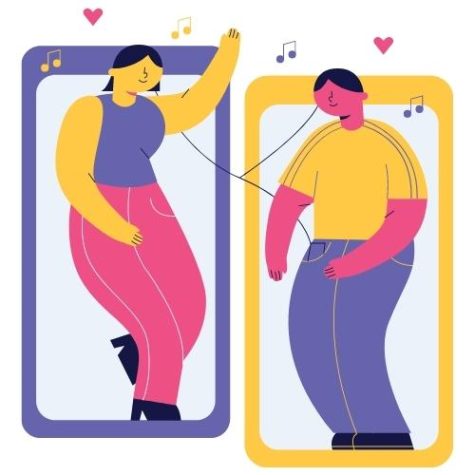
Hudson said that college campuses often become a breeding ground for exploitation and assault as young adults are often not given the knowledge needed to protect themselves.
“The system that we have in place and the cultures that are present can create those unsafe situations, and predators are drawn to those environments,” Hudson said. “I think it’s important to not let those things be ways that we justify the ways abuse can happen.”
She stressed that even experiencing hookups the “right” way still doesn’t fix the unsafe environment that abusers ultimately take advantage of.
“There’s all of these safety tips that go into preparing yourself for that kind of environment, but sometimes people can do everything ‘right’ and something can still happen to them, and it’s not their fault — it’s people that take advantage,” Hudson said.
The core of understanding hookup culture is understanding how it affects you, which then allows for a more complete view of every sexual decision you make.
“We want people to be safe about it,” Nordgren said. “And also just be educated enough to make their own decisions when it comes to sex as well.”
News Reporter Alexandria Anderson can be reached at [email protected].

